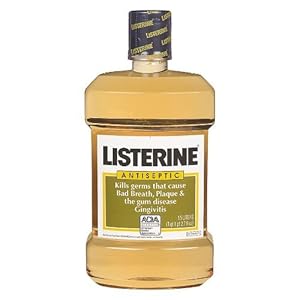I'm using JASON natural jojoba oil conditioner after shampoo. I do not have dandruff but I do get itchy scalp, especially in the colder months. I've just started to use it and I like it a lot. I got a 16 oz. bottle at Whole Foods for $9
I've heard cade oil is really good for dry scalps/ dandruff.
I've used the Dandruff control shampoo from Jason and it is really great. I would recommend it and you can get it at Whole Foods.






 ), in stressing that Listerine really does work. I've also have tried all the above plus prescriptions from my dermatologist, but
), in stressing that Listerine really does work. I've also have tried all the above plus prescriptions from my dermatologist, but 
